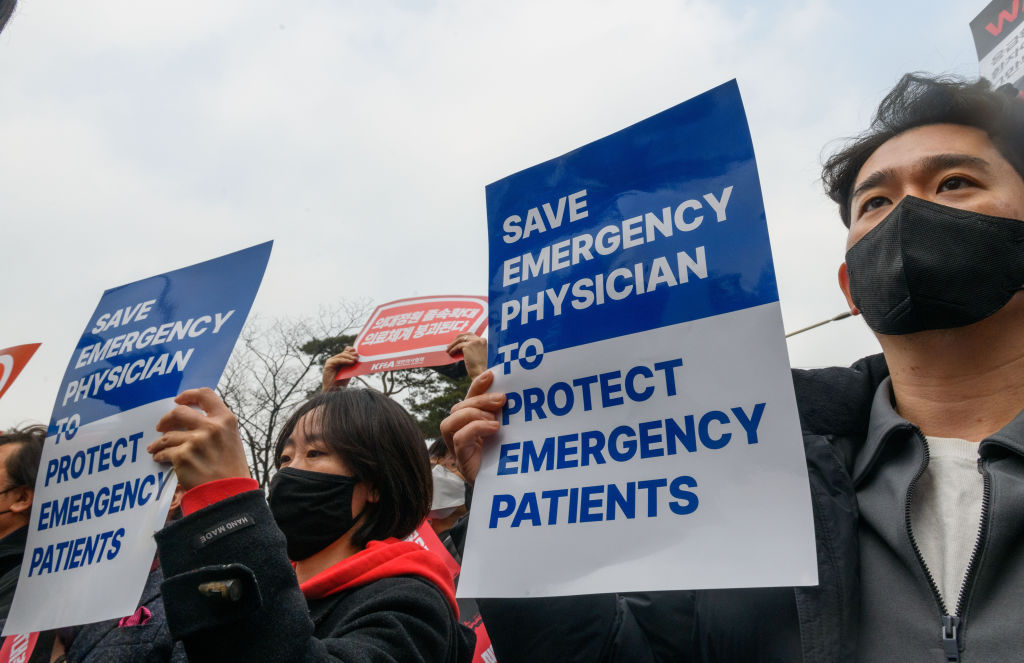
South Korean authorities have issued notices to temporarily suspend the licenses of two doctors in its first punishment since trainee doctors walked off their jobs about a month ago in protest of a government plan to increase medical school enrollment.
Two senior members of the Korean Medical Association received a three-month license suspension notice that takes effect from April 15, the group said Tuesday, adding the doctors are being accused of instigating collective action despite the government order not to do so.
Read More: Thousands of Striking Doctors in South Korea Defy Government’s Return-to-Work Deadline
“We will immediately file a lawsuit because we cannot accept this matter,” Joo Sooho, a KMA spokesperson said in a telephone interview. KMA represents about 15,000 doctors, including trainees.
The latest punishment comes as the prolonged walkout has been putting a strain on the medical system. Medical school professors, who also dispense health care, have said they would join the labor action and resign if the government does not take steps to resolve the standoff.
Thousands of trainee doctors, who play key roles in providing emergency care and surgeries, walked off the job in late February to protest a government plan to increase enrollment at medical schools by 2,000 spots a year from the current 3,058. President Yoon Suk Yeol has shown no signs of backing down from the plan, saying it is essential to fix a doctor shortage that ranks among the most acute in the developed world.
The South Korean government contends the enrollment plan is essential for providing care in the rapidly aging nation, and that medical seat numbers have not increased for nearly three decades. Doctors leading the protest say the plan won’t fix fundamental problems such as a dearth of physicians in vital fields, a concentration of doctors in urban areas and an array of legal risks.
South Korean doctors rank among the best paid among Organisation for Economic Co-operation and Development countries in comparison to average wages, which has led to criticism the labor action may be more about protecting the earning power of physicians rather than improving the health-care system.
More Must-Reads from TIME
- Where Trump 2.0 Will Differ From 1.0
- How Elon Musk Became a Kingmaker
- The Power—And Limits—of Peer Support
- The 100 Must-Read Books of 2024
- Column: If Optimism Feels Ridiculous Now, Try Hope
- The Future of Climate Action Is Trade Policy
- FX’s Say Nothing Is the Must-Watch Political Thriller of 2024
- Merle Bombardieri Is Helping People Make the Baby Decision
Contact us at letters@time.com